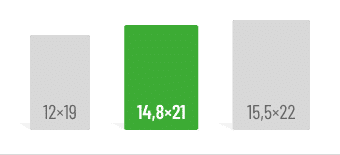What to expect:
Who is Gen Z anyway?
For some time now, the media has been full of harsh criticisms from older generations against “Gen Z,” voiced by the likes of Markus Lanz, Oliver Pocher, or Richard David Precht. In this article, we debunk the most common clichés and reveal what’s really behind them.
But who exactly belongs to this generation? Defining Generation Z in academic terms is debated, as it’s challenging to lump together 15 years of people. Sociologists generally define Gen Z as those born between 1995-2010, while other sources cite 1997-2012. This generation is the smallest age cohort since World War II, with around 6 million men and 5.57 million women. They are preceded by Generation Y (Millennials), currently the largest population group, and followed by Generation Alpha, born from 2010-12 onward.
Gen Z’s crises
Gen Z has witnessed many crises: the financial crisis, COVID-19, rising inflation, and European conflicts. As they look to the future, concerns about a lack of pensions grow. Gen Z is torn between traditional, secure values and a sense of escapism. While some worry about finances, others live lavishly. The effects of the pandemic are still visible. Gen Z is the first generation to truly feel the impact of climate change and the generational divide. They feel underrepresented by politics, as seen in movements like Fridays for Future, protests in Hambach Forest and Lützerath, or the “Last Generation” activism.
“Gen Z is lazy, work-shy, and doesn’t want to work”
The emerging concept of separating work-life contrasts sharply with the blending work-life common among Generation Y. Gen Z prefers a clear boundary between career and personal life, which is often mistaken for a lack of work ethic—but Gen Z is ready and able to perform, just within a well-defined framework. What Millennials call “flexibility” often means being always available, something Gen Z sees leading to burnout and physical strain, as witnessed in the previous generation. Instead, Gen Z views work as a means to an end, allowing them to afford the life they want. They increasingly demand a 4-day workweek and flexible hours, support part-time models, parental leave, and opportunities for further education. Rather than climbing the career ladder, they prefer horizontal development, continuous learning, and personal growth.
“Gen Z is incapable of relationships, unreliable and highly sensitive”
The abundance of different relationship models and sexual orientations today offers many freedoms but also a potential for overwhelm. Dating apps lead to frustration, are often superficial, and promote unrealistically high expectations: “Be authentic, but not boring; always available, but not too clingy; be extroverted, but not pushy; independent, but also committed—above all, stay true to yourself!” Despite this, Gen Z still values traditional concepts like friendship, true love, and integrity. Close relationships are important to them, even if the desire for a happy partnership or having children ranks lower in priority.
“Gen Z spends their entire life online”
Gen Z grew up with smartphones and is always online, blurring the lines between real and digital life. They are often called “Digital Natives” for this reason. The smartphone is both a communication tool and a work instrument.
This stereotype can be seen in a positive light: Gen Z is highly tech-savvy and fully integrated into the digital world, as they are the first generation to truly harness all the life-enhancing possibilities of new technologies. They can handle and process the digital information overload.
However, given all the crises they face, they also use the digital world as an escape from reality. Yet, due to the constant availability and related obligations, Gen Z increasingly values the analog world—not to replace the digital but to appreciate its worth. Communication now happens almost exclusively digitally, via messaging apps, social networks, or podcasts. TikTok is the most influential social platform for Gen Z. A PricewaterhouseCoopers (PwC) study revealed that 32% of 18-24–year-olds get their news solely from digital networks, while only 24% rely on traditional media like newspapers, radio, or TV. Instead of text-based communication, they prefer memes, emojis, videos, and voice messages. Gen Z also primarily trusts digital recommendations and reviews but still visits physical stores more than any other age group.
“Gen Z loves perfect self-presentation on social media”
Gen Z highly values their health, constantly monitored by fitness trackers or smartwatches. On social media, two opposing views on body image are prevalent among Gen Z. On one side is the desire for self-optimization and achieving Kim Kardashian-like proportions. On the other is a counter-movement promoting self-love and acceptance of one’s body, with “body positivity” and “body diversity” being highly valued.
The same dichotomy is evident in Gen Z’s fashion: Eco-friendly and hipster styles are equally popular. Their clothing is colorful and combines styles from different decades with unisex pieces. Fast and cheap on one hand, sustainable and fair on the other. The fashion industry is struggling with Gen Z’s rejection of consumerism, as their disillusionment lowers their willingness to buy.
“Employers win over Gen Z with security, stability, and tradition”
As a response to the uncertain future of society and the planet, Gen Z has a strong need for security. They value commitment and reliability, knowing that “too much freedom” can also have its drawbacks. Diversity is a given for them, and stereotypes and clichés are rejected and critically examined. Gen Z strives for justice, believing everyone should have the opportunity to realize their individual potential. They seek jobs that align with their personality, increasingly focusing on international opportunities and being willing to work abroad.
Gen Z finds security in their analog life with their parents and friends. Their relationship with their parents is marked by mutual trust and support. They were raised with an approach that equipped them with everything they needed and supported them in whatever was good for them. As a result, Gen Z also expects clear, successful directives from their bosses, along with recognition and respectful treatment. They prefer flat hierarchies. This often leads to them being labeled as “sensitive and demanding.” However, while Gen Z may see themselves as less capable than older generations, they tend to be highly efficient and perform well.
Conclusion
Some of these common stereotypes have become so ingrained that even Gen Z believes and perpetuates them. But they are often misunderstood by older generations, particularly their innovative and creative spirit. The prejudices against them reflect a resistance to change. It’s time to challenge these stereotypes because Generation Z is ready to change the world!
Sources:
https://www.personio.de/hr-lexikon/generation-z/
https://ga.de/news/panorama/generation-z-sie-sind-faul-und-jung-was-ist-an-den-vorurteilen-dran
https://boriskasper.de/progress-professionals/blog/gen-z-vorurteile-und-wirklichkeit
https://www.wmn.de/insights/neue-studie-ueber-die-gen-z-warum-wir-umdenken-muessen
https://www.wmn.de/beauty/face-body/das-schoenheitsideal-der-gen-z







